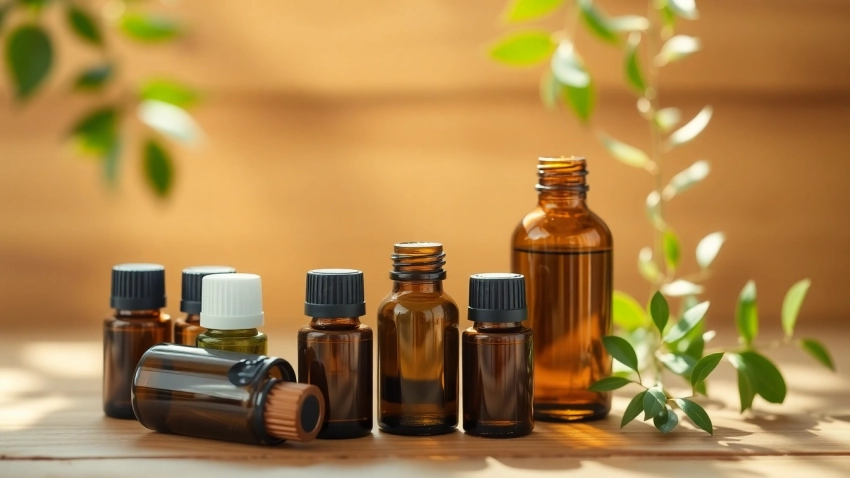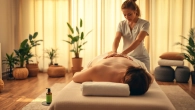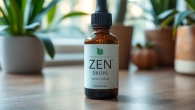
Embrace Wellness: How Essential Oil Can Enhance Your Everyday Life
Understanding Essential Oils
What Are Essential Oils?
Essential oils are concentrated plant extracts that capture the natural aroma and beneficial properties of various plants. They are typical of volatile compounds that not only provide fragrance but also possess therapeutic qualities. Unlike vegetable oils, essential oils are highly potent and are extracted from different parts of plants, including leaves, flowers, bark, and roots. One of the fascinating aspects of essential oil is their ability to affect both our physical and emotional health, making them popular in various applications, from aromatherapy to skincare.
History and Uses of Essential Oils
The use of essential oils dates back thousands of years, with records of their applications found in ancient Egyptian, Chinese, and Indian cultures. In Egypt, essential oils were used not only for cosmetic purposes but also in mummification processes to preserve the dead. Similarly, traditional Chinese medicine has long incorporated these oils for healing and wellness. The advent of modern medicine has seen a revival in interest in essential oils, especially with the rise of holistic health practices. Today, essential oils are used in aromatherapy, cooking, personal care, and cleaning, encompassing a wide spectrum of uses that appeal to various lifestyles.
How Essential Oils Are Extracted
The extraction of essential oils typically involves several methods, with the most common being steam distillation, cold pressing, and solvent extraction.
- Steam Distillation: This method uses steam to vaporize the volatile compounds in plant materials, which are then condensed back into liquid form, yielding pure essential oil.
- Cold Pressing: Commonly used for citrus oils, this method involves mechanically pressing the oil from the rind of the fruit without heat.
- Solvent Extraction: This method utilizes solvents to extract oils from plant materials, often producing absolute oils used primarily in perfumes.
Each extraction method influences the final composition and fragrance of the essential oil, contributing to its unique properties and applications.
Benefits of Using Essential Oil
Physical Health Benefits
Essential oils offer a myriad of health benefits, including relief from headaches, improved digestion, and bolstered immune systems. For instance, eucalyptus oil is renowned for its ability to relieve respiratory issues, while ginger oil may aid in digestion and alleviate nausea. Research indicates that some essential oils possess antibacterial and antiviral properties, making them valuable allies against infections.
Mental Health and Aromatherapy
Aromatherapy is a therapeutic practice that utilizes essential oils to promote emotional well-being. Scents can evoke powerful emotional responses; for instance, lavender is widely celebrated for its calming effects, helping reduce stress and anxiety levels. Studies have shown that inhaling the scent of essential oils can influence brain activity, potentially enhancing mood and cognitive function. Incorporating essential oils into daily routines, such as through diffusing or topical application, can foster a mentally enriching atmosphere.
Essential Oil for Daily Life
Beyond therapeutic benefits, essential oils can enhance various aspects of daily life. They can be used for natural cleaning solutions, personal care products, and even cooking creatively. For example, incorporating peppermint oil into homemade toothpaste can provide a refreshing taste and additional antibacterial properties. The versatility of essential oils allows individuals to embrace a more natural lifestyle, steering away from synthetic chemicals in everyday products.
Popular Essential Oils and Their Uses
Lavender: The Calming Essential Oil
Lavender essential oil is synonymous with relaxation. Its soothing aroma is effective in reducing anxiety, insomnia, and even minor skin irritations. Many people use it in bedtime rituals, adding a few drops to a diffuser or pillow to promote restful sleep. Additionally, studies suggest that lavender oil may have a positive effect on overall mood stabilization.
Peppermint: The Invigorating Essential Oil
Peppermint oil is known for its invigorating scent and numerous health benefits. Its refreshing aroma can enhance concentration and energy levels, making it popular among students and professionals. Furthermore, peppermint essential oil is often used to relieve headaches and digestive discomfort. Applying diluted peppermint oil to the temples or using it in inhalation can offer immediate relief from tension and fatigue.
Tea Tree: The Healing Essential Oil
Tea tree oil has gained recognition for its potent antiseptic properties, making it a staple in natural medicine cabinets. It is commonly used to combat acne, fungal infections, and dandruff. Its antimicrobial properties help inhibit the growth of bacteria and fungi when applied topically. Mixing tea tree oil with a carrier oil can create effective treatments for various skin ailments.
How to Choose Quality Essential Oil
Understanding Labels and Certifications
When shopping for essential oils, understanding labels is crucial for ensuring quality. Look for 100% pure oils without synthetic additives or fillers. Certifications such as “Certified Organic” or “Therapeutic Grade” can provide assurance of the oil’s quality and production standards. Familiarizing yourself with these terms helps in selecting genuine products that offer the full range of benefits.
Shopping Tips for Essential Oils
Buying essential oils requires careful consideration. It is essential to purchase from reputable brands and suppliers who provide transparency in sourcing and production. Pricing can also be an indicator of quality—extremely low-priced oils may not be pure. Preferably, opt for oils that provide batch-specific testing results, which confirm the potency and purity of the product.
Brands to Trust for Quality Essential Oil
Some well-renowned brands in the essential oil market consistently deliver high-quality products. Names like Young Living and dōTERRA have established credibility, often offering educational resources regarding their oils. Smaller brands can also provide outstanding quality, so it’s worth exploring niche suppliers that prioritize sustainable sourcing and transparency.
Incorporating Essential Oil into Your Routine
Essential Oils in Homecare
Essential oils can transform mundane cleaning routines into delightful experiences through natural fragrances and added antibacterial properties. Oils like lemon and tea tree can be incorporated into homemade cleaner recipes, providing efficacy and aroma without harsh chemicals. A simple mix of vinegar, water, and a few drops of your favorite essential oil can create an effective all-purpose cleaner.
DIY Recipes with Essential Oils
Crafting DIY products with essential oils not only enriches your environment but also enhances the overall quality of home care. Popular DIY applications include homemade lip balm, candles, and body scrubs. For instance, combining sugar, coconut oil, and lavender essential oil creates a soothing body scrub that exfoliates and nourishes the skin.
Essential Oil Blends for Maximum Benefits
Creating essential oil blends can elevate the benefits derived from individual oils. Blending oils like lavender and chamomile can produce calming effects, while combining peppermint and citrus oils may invigorate your senses. Experimenting with different ratios can lead to discovering personalized blends that cater to specific moods or occasions, optimizing the use of essential oils in daily life.












Leave a Reply